Top 20 Pharmacy Schools in the Midwest
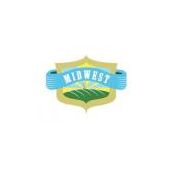
In preparing our inaugural list of the top pharmacy schools in the Midwest, we considered dozens of schools in the US that offered pharmacy programs. Our goal with this list is to give students access to information so they can make informed decisions about the schools they choose to attend and the programs they pursue. Our motivation for publishing these rankings is simple. We frequently receive emails from young people -many of whom are already working as pharmacy technicians- asking for advice as to which pharmacy schools they should consider. Our hope is that this list is a starting point for aspiring pharmacists to discover the schools that are the best fit for them.
The criteria we used in making this list consists, in no particular order, of the following: academic reputation, admission selectivity, depth and breadth of the program and faculty, size and scope of the pharm school class, and value as it relates to tuition. All data used on our rankings was obtained from publicly available sources.
Like any list, ours is not perfect and is open for debate. There is no single opinion that trumps all when it comes to which school is the “best”. Ultimately every student has different needs regarding the type and academic rigor of a program, campus culture, as well as cost, lifestyle, and career focus. Hence the notion that we consider these lists a starting point for aspiring pharmacists in the search for the appropriate program that meets their needs.
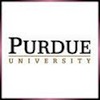 1. Purdue University College of Pharmacy, West Lafayette, Indiana
1. Purdue University College of Pharmacy, West Lafayette, Indiana
The Purdue University College of Pharmacy was founded in 1884. A Top Ten Pharmacy school in 2002, 2004, and 2008 (survey), the College of Pharmacy at Purdue is one of the largest Pharmacy Graduate Programs in the country and it offers more pharmacy programs than most other pharmacy schools in the U.S.
Offerings include a Pre-Pharmacy program, a B.S. in Pharmaceutical Sciences, a M.S. in Pharmacy Administration or Clinical Pharmacy, a M.S. in Regulatory and Quality Compliance, a Doctor of Pharmacy, and a Pharm.D./Ph.D. Dual degree program. The College also offers a Nuclear Pharmacy Certificate program, a Certificate in Regulatory and Quality Compliance, and a Minor in International Pharmacy.
Tuition and fees are $4,996 for Indiana residents, and $14,397 for non-residents (per semester). These tuition rates are for undergraduates and graduates. Tuition for the Doctor of Pharmacy (Pharm.D.) program is $11,048 per semester for residents and $20,178 per semester for non-residents.
About Purdue University: Purdue University College ranks among the Top 25 Public Universities in the country by U.S. News & World Report. Purdue University also ranks 65th among all universities in the U.S. Established in 1869, Purdue began with a 100-acre campus, just 39 students, and six instructors. Today, the school sits on 2,552 acres and it is home to 37,536 students enrolled in more than 270 programs.
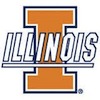 2. University of Illinois at Chicago College of Pharmacy, Chicago, Illinois
2. University of Illinois at Chicago College of Pharmacy, Chicago, Illinois
The University of Illinois College of Pharmacy was established in 1859. It is the oldest academic unit of the University of Illinois and one of the oldest pharmacy school's in the U.S. The school ranks among the Top Ten Colleges of Pharmacy in the U.S. by U.S. News & World Report. Home to 883 students, the College has a wide variety of offerings for aspiring pharmacists.
Offerings include a Pharm.D. and graduate programs in Biopharmaceutical Sciences, Forensic Science, Forensic Toxicology, Medicinal Chemistry, and Pharmacognosy. Joint degree programs include the Pharm.D./Ph.D., Pharm.D./MBA, Pharm.D./M.S.-CTS, and the Pharm.D./MSHI. Pharm.D. students may also study the University of Illinois College of Medicine at Rockford.
Graduate base tuition and fees for $5,533 per semester (full-time residents) and $11,532 per semester for full-time non-residents.
About University of Illinois at Chicago: The University of Illinois at Chicago (UIC) was formed in 1982, with the merging of the Medical Center campus (which dates back to the 19th century) and the Chicago Circle campus. This public research university is home to around 27,512 students, enrolled in more than 240 degree programs. The campus sits on 240+ acres and it houses 15 academic colleges.
 3. The Ohio State University College of Pharmacy, Columbus, Ohio
3. The Ohio State University College of Pharmacy, Columbus, Ohio
The Ohio State University College of Pharmacy was founded in 1885. It is one of the six original colleges at The Ohio State University. The College of Pharmacy is made up of six academic divisions including Pharmaceuticals & Pharmaceutical Chemistry, Pharmacology, Pharmacy practice & Administration, and Medicinal Chemistry & Pharmacognosy.
Degree offerings include a B.S. in Pharmaceutical Sciences (BSPS), a M.S. in Community Care and Health-Systems Pharmacy Administration, a Pharm.D. and a Ph.D. in Pharmaceutics, Pharmacology, Medicinal Chemistry & Pharmacognosy, and Translational Science. The College also offers several combined programs including the Pharm.D./MBA and the Pharm.D./MPH.
The Ohio State University College of Pharmacy tuition for years 1-3 is $20,472.80 per year in-state and $22,717.20 for year 4. Out-of-state tuition for years 1-3 is $39,072.80 per year and $43,153.20 for year 4. Tuition costs include all fees.
About The Ohio State University: The Ohio State University (OSU) was established in 1870. It ranks among the nation’s Top 20 National Public Universities by U.S. News & World Report. The school, which sits on 1,700 acres, is home to more than 55,000 students, making it one country’s largest universities. OSU houses four colleges that offer 175 undergraduate majors, and 240 masters, doctoral, and professional degree programs.
 4. University of Minnesota College of Pharmacy, Minneapolis, Minnesota
4. University of Minnesota College of Pharmacy, Minneapolis, Minnesota
The College of Pharmacy at the University of Minnesota (U of M) was founded in 1892. It is the only pharmacy school in the State or Minnesota and it ranks among the Top Ten Pharmacy Schools in the U.S. by U.S. News & World Report.
The College of Pharmacy at U of M provides education and training to roughly two-thirds of the state's 7,500 active pharmacists. The College, which consists of two connected campuses—one in the Twin Cities and the other in Duluth, is home to more than 280 students.
Program offerings include the Pharm.D. degree, M.S. programs in Integrated Biological Sciences, Social and Administrative Pharmacy, and Combined Social & Administrative Pharmacy Residency Program, Ph.D. programs in Medicinal Chemistry, Pharmaceutics, Experimental Pharmacotherapy, Social and Administrative Pharmacy, and Integrated Biological Sciences, and dual degrees including the Pharm.D./MBA, and the Pharm.D./MPH.
The Pharm.D./MBA program is offered through two schools—the Carlson School of Management and the Labovitz School of Business and Economics. Tuition rates for the College of Pharmacy are $991 per credit for years 1-3 (or $11,892 per term for 12+ credits), and $11,892 per term for year 4, regardless of credit load. Nonresidents pay $1,466 per credit for years 1-3 (or $17,592 for 12+ credits) and $17,592 for year 4, regardless of credit load.
About University of Minnesota:Established in 1851, the University of Minnesota (U of M) is home to more than 69,000 students. The school sits on 1,150 acres in Minneapolis and St. Paul and it offers more than 180 academic programs. In addition to housing two MacArthur “Geniuses,” the University of Minnesota has produced an admirable 86 Guggenheim Fellows and 20 Nobel Laureates.
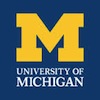 5. University of Michigan College of Pharmacy, Ann Arbor, Michigan
5. University of Michigan College of Pharmacy, Ann Arbor, Michigan
The University of Michigan College of Pharmacy is one of America’s Best Pharmacy Schools. Established in 1876, the College of Pharmacy was the first school of pharmacy in a U.S. state university. The College is home to approximately 300 Pharm.D. students, and 70 graduate students.
The College of Pharmacy offers a Pharm.D. degree, a Ph.D. in Medicinal Chemistry with Biochemical, Biophysics, Bioinformatics, and Organic tracks; Ph.D. degrees in Pharmaceutical Sciences and Social and Administrative Sciences; a Master of Engineering - Pharmaceutical Engineering, and a Joint Pharm.D. and Ph.D. in Pharmaceutical Sciences.
Tuition for Michigan residents is $20,212 and $36,134 for non-residents.
About University of Michigan: The University of Michigan was established in 1817, making it one of the oldest universities in the region and the first public university in the Northwest Territories. The school, which consists of three campuses, is home to more than 59,000 students. The main campus in Ann Arbor sits on roughly 31,000 acres, and it offers more than 250 areas of study across 19 colleges and schools.
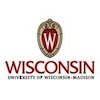 6. University of Wisconsin-Madison School of Pharmacy, Madison, Wisconsin
6. University of Wisconsin-Madison School of Pharmacy, Madison, Wisconsin
The University of Wisconsin-Madison School of Pharmacy was established in 1883. It was the first school of pharmacy to offer a baccalaureate degree in Pharmacy, the first in the nation to offer continuing education, and the first school to award doctoral degrees in Pharmaceutical Chemistry, Pharmaceutics, the History of Pharmacy, and Social Studies of Pharmacy
University of Wisconsin-Madison School of Pharmacy the Pharm.D., a Ph.D. in Pharmaceutical Sciences, a M.S. in Health System Pharmacy Administration, a M.S. and a Ph.D. in Social & Administrative Sciences in Pharmacy, and a Pharm.D./MPH dual degree. Other offerings include a B.S. in Toxicology and Certificates in Consumer Health Advocacy, Global Health, Fundamentals of Clinical Research, Type 2 Translational Research, and Patient Safety.
Tuition rates for the University of Wisconsin-Madison School of Pharmacy are $8,143 per semester for Wisconsin Residents, $12,457 per semester for Minnesota Residents, and $14,372 per semester for non-residents and international residents. Tuition rates include the projected $565 per-semester segregated fees.
About University of Wisconsin-Madison: The University of Wisconsin-Madison was established in 1848. The school sits on 936 acres and it home to more than 42,000 students enrolled in more than 400 academic programs at all levels. Ranked among the world’s Top 20 Universities in the annual Academic Ranking of World Universities (ARWU) by Shanghai’s Jiao Tong University, University of Wisconsin-Madison houses an notable 20 colleges and schools.
 7. University of Iowa College of Pharmacy, Iowa City, Iowa
7. University of Iowa College of Pharmacy, Iowa City, Iowa
Founded in 1885, the University of Iowa College of Pharmacy is the 4th oldest College of Pharmacy in a state-supported university. The Doctor of Pharmacy (Pharm.D.) program ranks among the Top 20 Pharm.D. programs in the U.S., and 48 percent of Iowa's pharmacists graduate from the University of Iowa College of Pharmacy.
The College of Pharmacy is home to 410 professional students and 73 graduate students. Offerings include the Pharm.D., the Pharm.D./MPH and Ph.D. degrees in Pharmaceutics, Clinical Pharmaceutical Sciences, Pharmaceutical Socioeconomics, and Medicinal and Natural Products Chemistry. The College also offers a M.S. in Pharmaceutics.
Tuition and mandatory fees for the University of Iowa College of Pharmacy are $10,692 per semester for Iowa residents and $19,294 per semester for non-residents.
About University of Iowa: Established in 1847, the University of Iowa is the state’s first public institution of higher learning. It was also the first school west of the Mississippi to establish a law school and an educational radio station. Today, the school ranks among the Top 50 Public Universities in the country. Home to 30,500 students, the University of Iowa sits on a 1,900-acre campus and it offers more than 100 academic programs throughout 11 colleges.
 8. University of Nebraska College of Pharmacy, Omaha, Nebraska
8. University of Nebraska College of Pharmacy, Omaha, Nebraska
The University of Nebraska College of Pharmacy was established in 1908 and it was the third Pharmacy School in the U.S. to offer the Pharm.D. degree. In addition, more than half of Nebraska pharmacists received their training at the UNMC College of Pharmacy. The College offers the Pharm.D., and a M.S. or Ph.D. in Pharmaceutical Sciences. Tuition for the College of Pharmacy is $9,164 per semester for residents and $18,332 per semester for non-residents.
About University of Nebraska Omaha: Founded in 1908, the University of Nebraska Omaha (UNO) is Nebraska’s “premier metropolitan university.” The University sits on a 150-acre campus and it is home to nearly 15,395 students enrolled in 200 majors and programs.
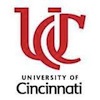 9. University of Cincinnati James L. Winkle College of Pharmacy, Cincinnati, Ohio
9. University of Cincinnati James L. Winkle College of Pharmacy, Cincinnati, Ohio
The James L. Winkle College of Pharmacy was established in 1850 as the Cincinnati College of Pharmacy. Offerings include the Pharm.D. and M.S. and Ph.D. programs in Pharmaceutics, Pharmacology, and Social & Administrative Sciences.
The College also offers part-time distance learning Tracks in Drug Development and Cosmetic Science, and online Graduate Certificates in Clinical Trials Design and Research: New Drug and Device Development, Global Regulatory Affairs in Drug Development, and Cosmetic Science.
Annual tuition for the Winkle College of Pharmacy is $8,965 for residents, $15,303 for non-residents, and $11,215 for metropolitan residents (Pharm.D. only).
About University of Cincinnati: Established in 1819, the University of Cincinnati is among the “top tier” of the Best National Universities by U.S. News & World Report. The school, which sits on 473 acres, offered the first bachelor’s degree program in nursing and the first emergency medicine residency program. The University of Cincinnati is home to 41,970 students enrolled in nearly 400 programs of study across 18 colleges and divisions.
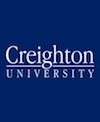 10. Creighton University School of Pharmacy and Health Professions, Omaha, Nebraska
10. Creighton University School of Pharmacy and Health Professions, Omaha, Nebraska
Creighton University School of Pharmacy and Health Professions consistently ranks among the Top Private University Pharmacy Programs in the country. The School accepts just 115 campus pharmacy students and 75 distance pharmacy students each year. Offerings include the Pharm.D. degree.
Tuition for the program (campus and online) is $32,428 for the first, second or third year and $48,642.00 for the fourth year (3 semesters: Summer, Fall, & Spring).
About Creighton University: Established in 1878, Creighton University is one of only 28 Jesuit colleges and universities in the U.S. The school sits on a 138-acre campus near the downtown business district and it ranks among the Best Colleges in the Midwest by U.S. News & World Report. Home to 7,700 students, Creighton University offers more than 150 programs across nine colleges and schools.
Pages

- Facebook Like
- Google Plus One
- 146639 reads


